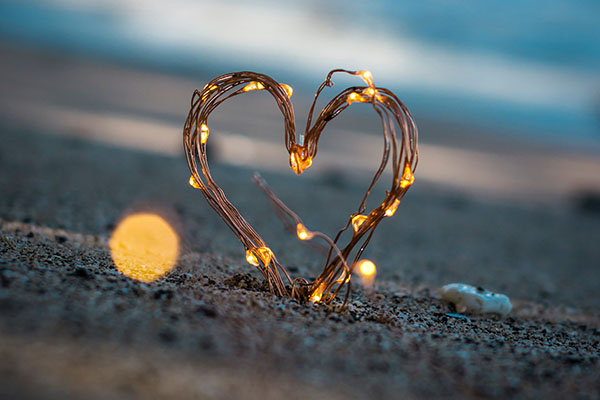For both singles and couples, long periods of isolation or cocooning with just one or two others has taken an unexpected emotional toll. This two-part article examines a few of the ways, some healthy and some questionable—though understandable—that we cope with our wants and needs during the Great Quarantine of ’20 – ‘21.
Part 1: The Singles
Among approximately 30 of my single friends and clients, one-third are currently off the dating market completely. Half of those had just gotten out of bad relationships, avoid relationships, hate online dating, and so on. But the other half of this “off the singles market” group has reacted to Coronavirus lockdown by burrowing deep into isolation in a search for safety and an effort to keep out the virus-filled world. They are continually taking their “risk temperatures” and deciding against taking a risk. The results of this reaction, the physical, emotional, and cognitive effects of isolation, are well known, with depression and anxiety just the tip of the iceberg. Working with these clients means helping them counter the isolationist urge as much as possible under the circumstances.
Of the other 20 singles, fully eight of them have fallen head-over-heels in love during Coronavirus time. They are currently waltzing absent-mindedly in a fog, magically bewitched by a stranger’s spell, lost in a “love-trance,” as Sappho called it some 2,500 years ago. And the remaining twelve singles are just itching to follow them. Their yearning for infatuation has been magnified by the pandemic.
Love in the time of Coronavirus, like “Love in the Time of Cholera,” Gabriel García Márquez’s 1985 novel, asks us to question passion, especially unbalancing, obsessional, sexualized passion, and its role in our wants and needs. Freud supposedly refused to work with infatuated people (probably apocryphal), and literature is full of besotted lovers who throw reason—and possibly pandemic safety?—out the door. I don’t blame these folks, except for the safety issues. Indeed, they—like all single people under lockdown and fearful of health issues—are sitting ducks, plumped and ripened emotionally and physiologically for Cupid’s diverting arrow.
What makes current infatuations suspicious are the extreme effects of the pandemic on loneliness and alienation. Preexisting psychological issues can be exacerbated by enforced solitude and make us long for and susceptible to magic fixes. Even in the best of times, codependency, lack of purpose, bad relationship role models, etc., can produce proclivities that propel us into infatuation. In Coronavirusville, loneliness, isolation, and death stalk each of us. No wonder the attraction of “love!” As Erich Fromm advises us in “The Art of Loving,” when two strangers suddenly drop their defenses and see each other, feel close, and combine that with sex, it is “one of the most exhilarating, most exciting experiences in life…. [Lovers] take the intensity of the infatuation, this being “crazy” about each other, for proof of the intensity of their love, while it may only prove the degree of their preceding loneliness.”
Another way to look at infatuation is through physiology. Everyone needs hugs, singles maybe more so. The oxytocin released in a 30-second hug comforts us and reminds us that we are not alone in the universe and we are lovable. Where do singles get their hugs nowadays, with lockdown? As if dating wasn’t hard enough anyway, now singles are faced with enforced social, sexual, and emotional starvation.
If they can manage to dance around the safety rules and finally, really date, singles, as always, run the (hoped-for) risk of flooding their systems with dopamine, norepinephrine, and serotonin. Lust and sex release testosterone and estrogen. Emotional closeness calls forth more oxytocin and vasopressin. This hormonal soup called “infatuation” adds up to a love potion that takes these isolated, quarantined people out of themselves and assures them they will never again be lonely, bored, frustrated, or without purpose. Thus, the brain, playing along, quickly becomes addicted to a physiological and emotional fix.
My advice to single friends and clients, both those who date and those who avoid others: You are bearing the emotional and sexual brunt of the pandemic, so it’s even more important—crucial—to keep up your independent self-care practices: a healthy work/life balance, meditation, exercise, Zoom calls with friends, regular doses of humor, walks on the beach, spiritual practices, deep breathing, creative pursuits, new learning, reading, hiking, in short, making every effort to keep your life as busy and enjoyable and self-nurturing as possible. Don’t rely on others to provide that.
And if you do become infatuated, enjoy the sense of aliveness it brings, since it doesn’t happen all that often. Just don’t forget you’re under the influence of some powerful chemicals and reacting to some very trying and lonely-making times. But who can blame you? We are all looking for comfort these days, just in different ways.
David Bowman LMFT is a licensed psychotherapist based in Los Angeles, California.
Photo by Steve Halama on Unsplash

 Tags:
Tags: